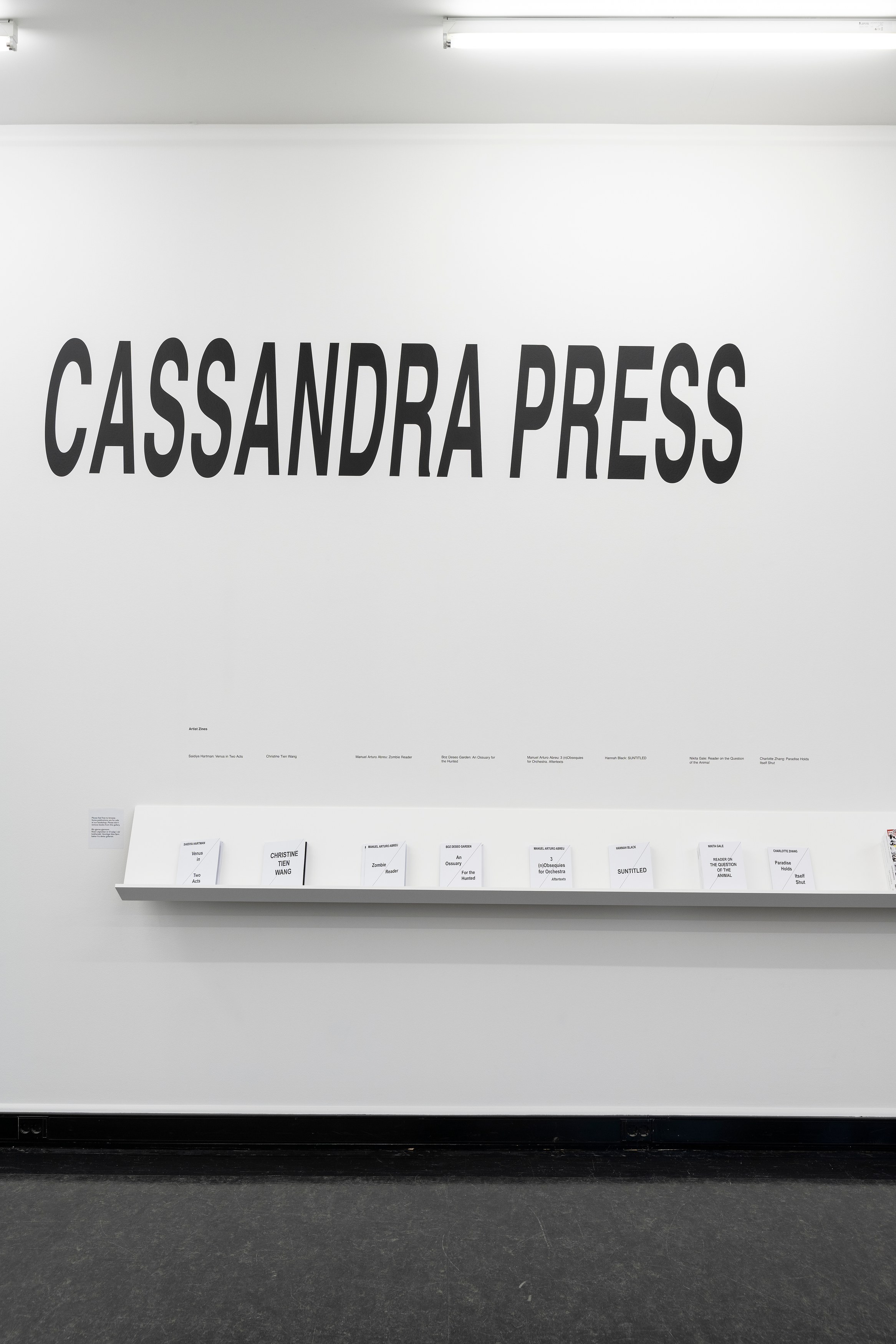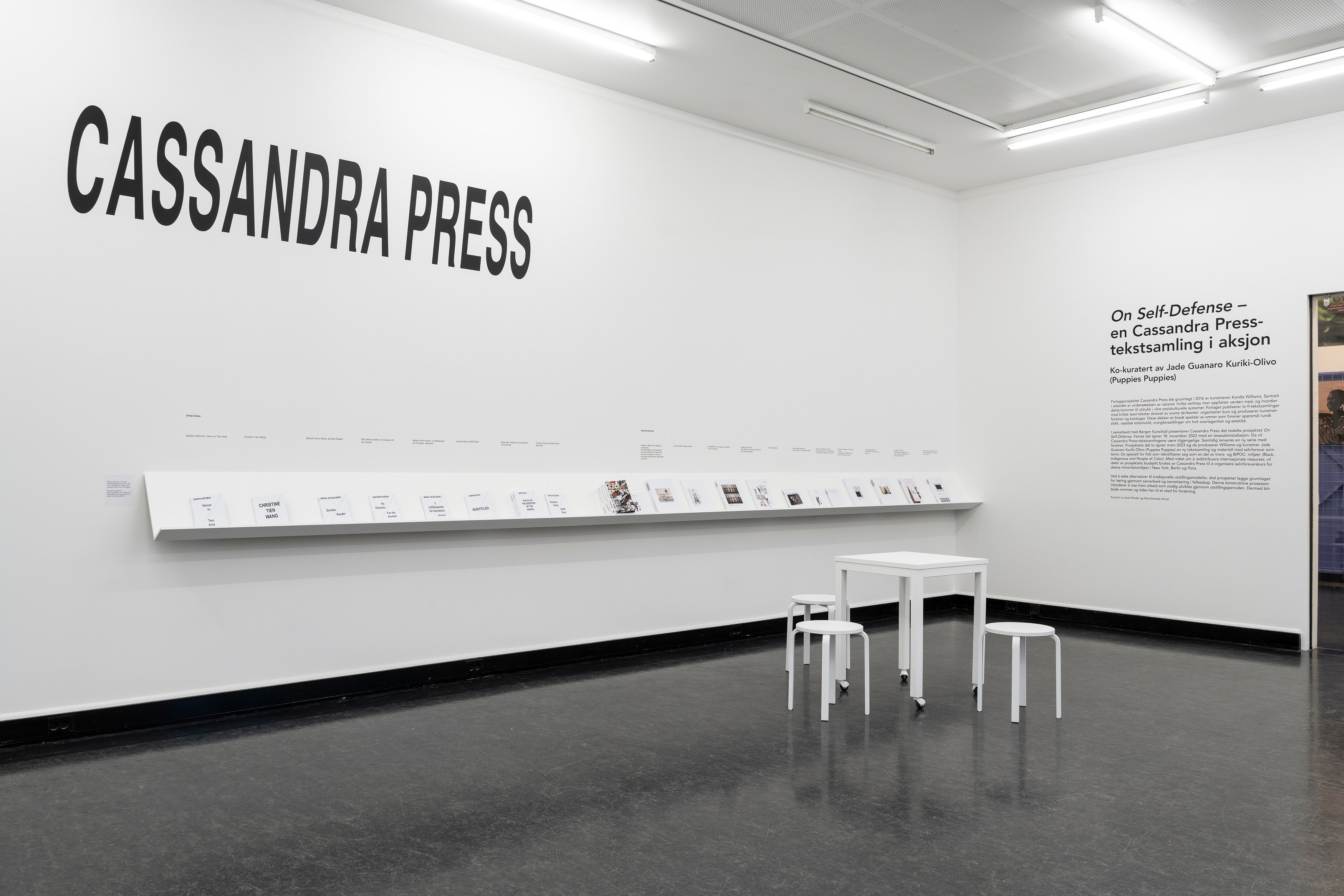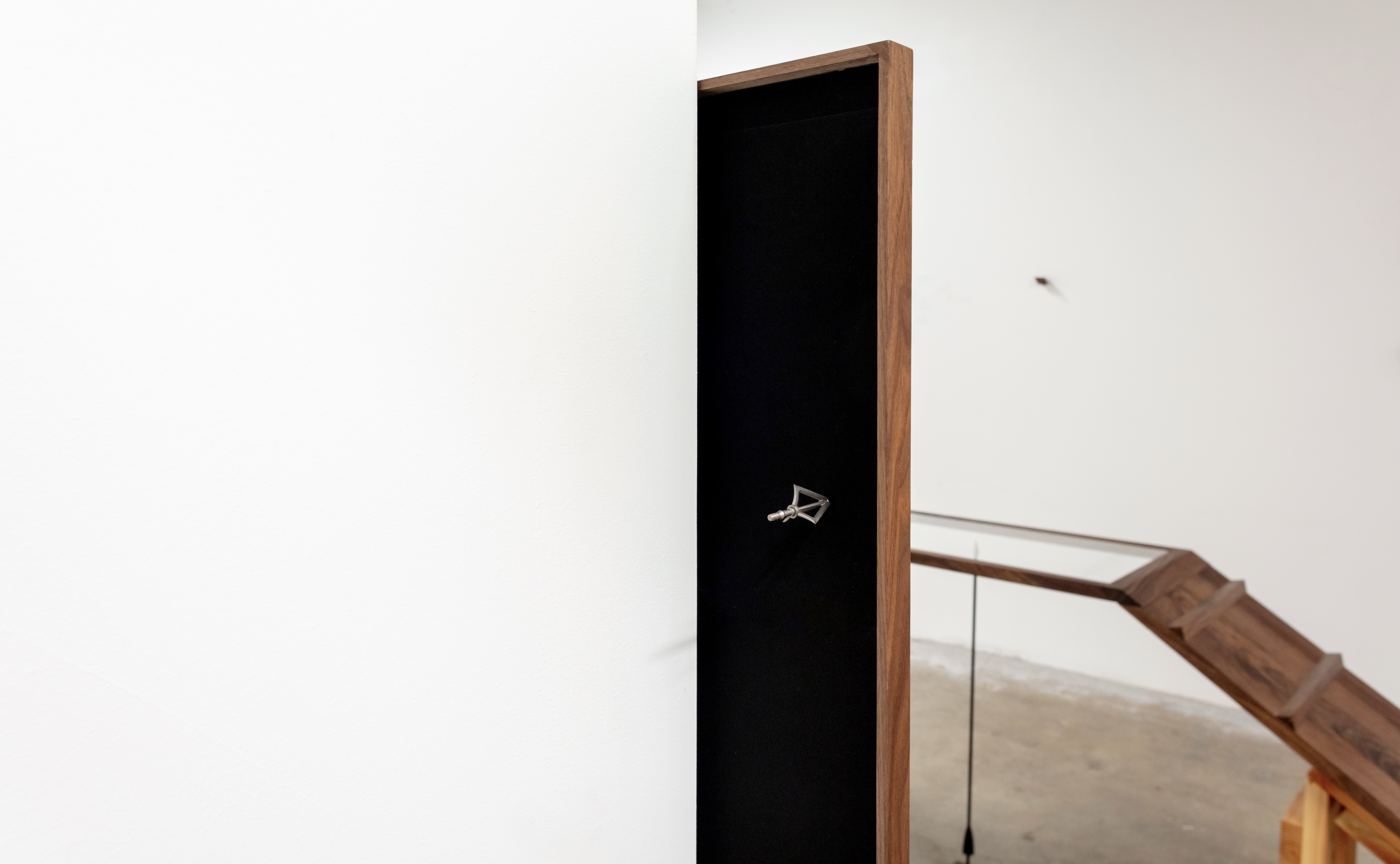![]()
Installation at Bergen Kunsthall, Norway, November 2022 - April 2023 for Cassandra Press: On Self-Defense – A Cassandra Press Reader In Action
![]()
Installation of Penance for the Hound of Gubbio at University of California, Los Angeles 2021
![]()
Installation of Penance for the Hound of Gubbio at University of California, Los Angeles 2021 (detail)
![]()
Copy of An Ossuary for the Hunted, 2021
8.5 x 11 in.
2021
![]()
Installation of Penance for the Hound of Gubbio at University of California, Los Angeles 2021
![]()
Installation of Penance for the Hound of Gubbio at University of California, Los Angeles 2021
![]()
Installation of Penance for the Hound of Gubbio at University of California, Los Angeles 2021
![]()
Installation of Penance for the Hound of Gubbio at University of California, Los Angeles 2021 (detail)
![]()
Installation of Penance for the Hound of Gubbio at University of California, Los Angeles 2021 (detail)
![]()
Installation of Penance for the Hound of Gubbio at University of California, Los Angeles 2021 (detail)
![]()
Installation of Penance for the Hound of Gubbio at University of California, Los Angeles 2021 (detail)
Ossuary for the Hunted (Essay) Printed for Cassandra Press’s Artist Zine Series, 2022
Commissioned by Kandis Williams’ Cassandra Press for its Artist Zine Series, this work is the written component of Penance for the Hound of Gubbio. Through the parable of Saint Francis of Assisi’s Taming of the Wolf, the story of James Williams, a fugitive Slave who was commanded to be the object of a plantation dog’s training, and Jeffery Ryans, a Black man who suffered severe injuries after being attacked by a police K-9 in 2020, this work elaborates the sculptural work’s themes of coercion, discipline, and repetition as inextricable from Christian mytho-logics that yoke Blackness, threat, and animality.
Penance for the Hound of Gubbio is a comparative study that looks at the histories of dog training practices across police departments and plantations during chattel slavery through Judeo-Christian grammars of penance, discipline, and/or devotion (Saint Francis of Assisi’s Taming of the Wolf of Gubbio). It works through how Blackness’s symbolic imbrication with animality/the other-than-human is achieved through degrees of training and coercion or how anti-Blackness transforms Black flesh to be connatural with animal flesh through repetitious routines of violence and pleasure. The work argues that these racialized associations can be traced back to Christian parables/mythologies of the medieval period and is a literature whose afterlives can be located in the contemporary affective uses of police dogs on Black bodies and a general discourse of untamable incursions of the Other.






